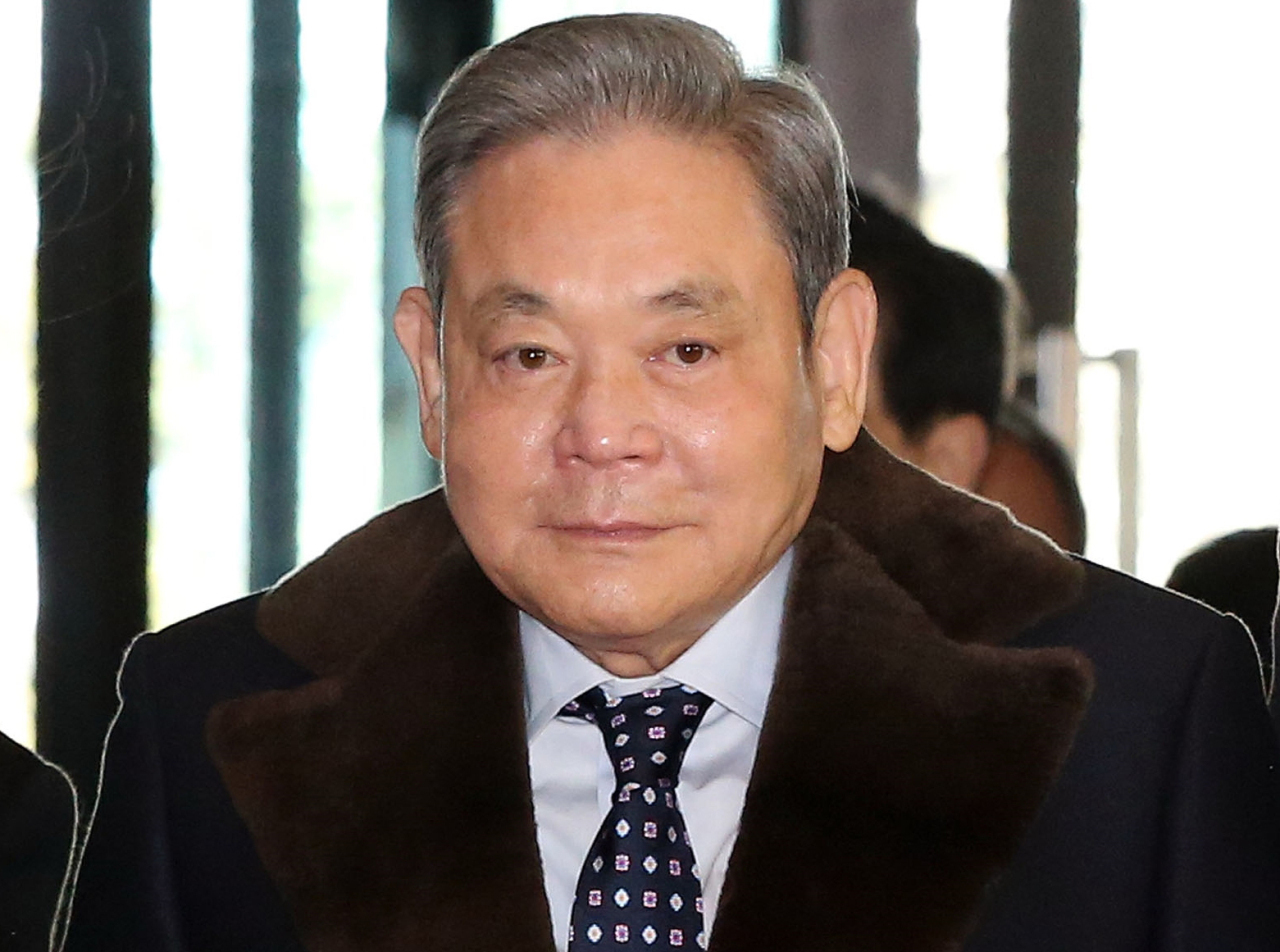The inheritance process for the wealth of the late Samsung Group tycoon rekindled a chronic legislation debate here – the country’s inheritance tax rate that is one of the world’s highest.
While business circles took the occasion to call for a revision of the current taxation system, authorities continued to draw a line in the debate, refraining from what may seem to be a privilege for the Samsung empire.
Some market observers, while consenting to the tax system itself, claimed that more flexibility should be allowed regarding the payment process.
The trigger was the unprecedented amount of tax imposed on the heirs of the late Samsung Group Chairman Lee Kun-hee, who died last October after years in his sickbed. His heirs were his wife Hong Ra-hee and three children, including his only son Lee Jae-yong, who is currently at the helm of the nation’s largest conglomerate.
Last month, the Lee family members unveiled their road map for paying the inheritance tax estimated to be over 12 trillion won ($10.72 billion).
The announcement included the donation of a colossal series of artworks and antiques worth nearly 10 trillion won, as well as 1 trillion won worth of funds allocated to improving the country’s health care system.
Despite the massive donations, the Samsung owner family still faces a huge tax bill which they plan to pay over the next five years.
The majority was the inheritance tax for the late Lee’s shares in Samsung affiliates, which totaled 11.37 trillion won, accounting for 58.2 percent of the value of his total stock assets.
South Korea’s inheritance tax rate ceiling currently stands at 50 percent but premium rates may be added when the predecessor is the largest shareholder or a person specially-related to the company.
In order to make the payments, Hong and her daughter Lee Seo-hyun took out short-term loans at high interest rates from multiple financial institutions.
Lee Jae-yong has also deposited 42.02 million units of his stocks in Samsung Electronics at the Seoul Western District Court as a security for tax payment, the Financial Supervisory Service data showed last week.
As the Lee family’s inheritance volume and their moves to secure the necessary cash made headlines, other past cases of conglomerate succession and asset inheritance were brought back to the public’s attention.
A relatively recent example was LG Group Chairman Koo Gwang-mo, who in 2018 reported 921.5 billion won in inheritance tax for the stocks held by his belated father Koo Bon-moo. Hanjin Group Chairman Cho Won-tae is also paying some 270 billion won worth in inheritance tax over several installments, due to the inheritance of his father Cho Yang-ho, who died in 2019.
According to the Korea Enterprises Federation, South Korea’s maximum inheritance tax rate is 50 percent, but it may rise as high as 60 percent, taking into account the valuation premiums. The corresponding figure would be higher than Japan’s 55 percent ceiling and thus the highest among the Organization of Economic Cooperation and Development member states.
Asia’s fourth-largest economy is one of the 23 among 36 OECD member states that imposes inheritance tax on those who inherit assets, marked for its conspicuously stiff taxation rules, the KEF claimed.
“Of the 23 OECD states that adopt an inheritance tax system, 17 would apply differentiated tax rates in the case of parent-child inheritance, in order to support smooth corporate succession,” it said.
Also, in Korea, the range of inheritance tax deductions is limited to small- and medium-sized enterprises only, which may act as discriminatory for larger businesses, it said.
Some also pointed to the risk of double taxation as the inherited assets have already been taxed in the income tax category. It is thus the international norm to keep the inheritance tax rate ceiling at a similar level to the income tax rate, but in Korea, the gap goes as high as 15 percent, according to the KEF.
“Corporate succession is not just the passing on of wealth, but a process of maintaining a business so that it may continue to create jobs and contribute to the nation’s economy,” said the Korea Economic Research Institute.
The government, however, refused to take immediate actions while the Samsung inheritance agenda is still ongoing.
“The government is not considering lowering the inheritance tax rate,” Vice Finance Minister Lee Eog-weon said late last month, in answer to a related question shortly after the late Samsung chief’s inheritance value was revealed.
Progressive civic groups also blamed business circles for their attempts to rid of the tax regulations.
“The inheritance tax system is crucial in reducing the economic injustice,” said the Citizens’ Coalition for Economic Justice in a statement, adding that the deduction benefit should remain limited to smaller enterprises.
While opposing calls for an inheritance tax rate reduction, the CCEJ appreciated the Samsung heirs for their earnest move to comply with the taxation, without attempting to dodge it
In response to backlash, the Federation of Korean Industries suggested a compromise which extends the installment payment period of inheritance tax from the current five years. In the case of the US, Germany, and Japan, inheritors are allowed to pay their inheritance taxes over 10 years, under certain requirements.
By Bae Hyun-jung (
tellme@heraldcorp.com)








![[Today’s K-pop] Blackpink’s Jennie, Lisa invited to Coachella as solo acts](http://res.heraldm.com/phpwas/restmb_idxmake.php?idx=644&simg=/content/image/2024/11/21/20241121050099_0.jpg)